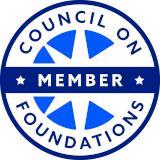Community Impact
 Reaffirming its Manufacturing Roots: Bristol Applies for Working Cities Challenge
Reaffirming its Manufacturing Roots: Bristol Applies for Working Cities Challenge
Bristol was built on the manufacturing industry and still has a rich tradition of manufacturing. However, the city is postindustrial and faces many challenges related to that. It is for that reason that a group of 17 organizations from several different sectors came together to apply for the Working Cities Challenge.
The Working Cities Challenge is an initiative by the Federal Reserve Bank of Boston to lead small postindustrial cities through a meticulous process that will help them undertake complex challenges and achieve large scale community impact. Specifically, the challenge the city decides to address must focus on low to moderate income individuals and residents of color. Bristol was one of 16 cities in Connecticut that qualified and applied, competing for a grant to carry out the proposed project.
The basis of the application from Bristol was to reduce the percentage of Asset Limited, Income Constrained, Employed (ALICE®) families and change historic patterns of income segregation.
“Almost half of Bristol’s households, about 45 percent, are under the ALICE® income threshold,” said Susan Sadecki, President & CEO of Main Street Community Foundation, one of the organizations participating in the Bristol grant application. “These are working families, but they are stressed. They are economically challenged, often socially isolated, and they are predominantly unknown to the social service organizations that serve the profoundly poor and homeless families.” In addition to the Foundation, the Bristol team was comprised of representatives from the Bristol Mayor’s Office, Bristol Development Authority, United Way, NAACP, Bristol Hospital and several local nonprofits.
How was the Bristol team proposing to help these residents? By increasing access to vocational training, GED classes and apprenticeship programs that help people prepare for higher paying, “living wage” jobs, and improving access to public transportation and affordable childcare.
Although the Bristol team was not chosen for the grant, the Challenge inspired the multi-sector team to carry on this work to improve the lives of low to moderate income individuals and residents of color by focusing on the proposed solutions and continuing the conversation.





